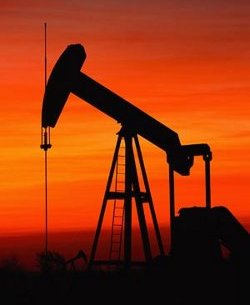Rumours that a deeper, darker ocean flows beneath the cold coastal waters of Greenland have triggered a scramble to drill for oil off the world’s largest island.
And if prospectors hit pay dirt – a potential 52 billion barrels of oil equivalent – then it won’t be virgin white pack ice and a pristine marine environment alone that risk becoming sullied. Reputations, business deals and politicians may be tarred and sticky too.
Because where oil is found then history tells us that corruption will follow.
Transparency International’s Corruptions Perceptions Index 2010 highlights the connection: Russia, the world’s largest producer and second largest exporter of oil, ranks 154 out of 178 countries for corruption. Its low standing spells trouble for the Russian Arctic, where oil-fever is increasing as sea ice recedes. In August, state oil company Rosneft signed a £1.9 billion deal with ExxonMobil to drill for 40 billion barrels under the South Kara Sea.
Meanwhile Mikhail Khodorkovsky, formerly head of Russian oil company Yukos languishes in jail on charges of fraud that many believe are politically motivated – Yukos is now part of Rosneft – and this week a high court battle begins between another two oil-rich oligarchs. Boris Berezovsky claims he was intimidated by Roman Abramovich into selling his shares in the oil company Sibneft for a knock-down price. Berezovsky fled Russia in 2000 after falling out with Vladimir Putin. Russia’s powerful president is also alleged to be Europe’s richest man.
Greenland does not yet feature on the corruption index – which has Iran and pre-war Libya (fourth and 17th largest oil producers in the world) tied at 146 and Iraq and Afghanistan at 175 and 176 respectively – but that will change if oil is found. Its ability to spread and taint is already well documented elsewhere in the world.
Nigeria, Venezuela and Ecuador...
Last month a report revealed the extent of damage wrought to Nigeria’s Niger Delta by 50 years of oil drilling by Shell. A succession of governments effectively relied on the company to police itself and clean up spills. Almost 80 per cent of Nigeria’s revenue comes from oil and gas, which has earned Africa’s largest oil producer an estimated $600 billion since the 1960s. Approximately 70 per cent of its people live below the poverty line.
In 2009, Shell paid £9.6m to settle a legal action accusing it of complicity in the execution in 1995 of nine Ogoni tribal leaders including playwright Ken Saro-Wiwa, who were campaigning to stop the destruction of their environment. The settlement meant it did not have to answer charges of colluding with the military dictatorship of the time to clamp down on protests and had whole army units in its pay.
A confidential 2009 cable published by Wikileaks last year also found Shell boasting that it had company spies in ‘all the relevant ministries’ of Nigeria’s government.
Read more:

And if prospectors hit pay dirt – a potential 52 billion barrels of oil equivalent – then it won’t be virgin white pack ice and a pristine marine environment alone that risk becoming sullied. Reputations, business deals and politicians may be tarred and sticky too.
Because where oil is found then history tells us that corruption will follow.
Transparency International’s Corruptions Perceptions Index 2010 highlights the connection: Russia, the world’s largest producer and second largest exporter of oil, ranks 154 out of 178 countries for corruption. Its low standing spells trouble for the Russian Arctic, where oil-fever is increasing as sea ice recedes. In August, state oil company Rosneft signed a £1.9 billion deal with ExxonMobil to drill for 40 billion barrels under the South Kara Sea.
Meanwhile Mikhail Khodorkovsky, formerly head of Russian oil company Yukos languishes in jail on charges of fraud that many believe are politically motivated – Yukos is now part of Rosneft – and this week a high court battle begins between another two oil-rich oligarchs. Boris Berezovsky claims he was intimidated by Roman Abramovich into selling his shares in the oil company Sibneft for a knock-down price. Berezovsky fled Russia in 2000 after falling out with Vladimir Putin. Russia’s powerful president is also alleged to be Europe’s richest man.
Greenland does not yet feature on the corruption index – which has Iran and pre-war Libya (fourth and 17th largest oil producers in the world) tied at 146 and Iraq and Afghanistan at 175 and 176 respectively – but that will change if oil is found. Its ability to spread and taint is already well documented elsewhere in the world.
Nigeria, Venezuela and Ecuador...
Last month a report revealed the extent of damage wrought to Nigeria’s Niger Delta by 50 years of oil drilling by Shell. A succession of governments effectively relied on the company to police itself and clean up spills. Almost 80 per cent of Nigeria’s revenue comes from oil and gas, which has earned Africa’s largest oil producer an estimated $600 billion since the 1960s. Approximately 70 per cent of its people live below the poverty line.
In 2009, Shell paid £9.6m to settle a legal action accusing it of complicity in the execution in 1995 of nine Ogoni tribal leaders including playwright Ken Saro-Wiwa, who were campaigning to stop the destruction of their environment. The settlement meant it did not have to answer charges of colluding with the military dictatorship of the time to clamp down on protests and had whole army units in its pay.
A confidential 2009 cable published by Wikileaks last year also found Shell boasting that it had company spies in ‘all the relevant ministries’ of Nigeria’s government.
Read more:


No comments:
Post a Comment